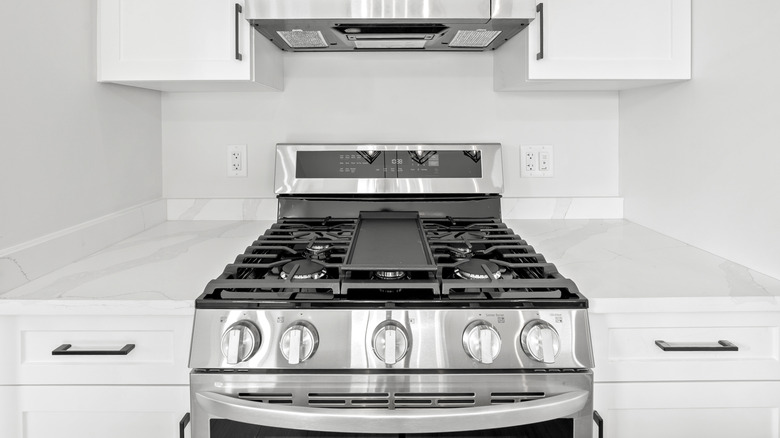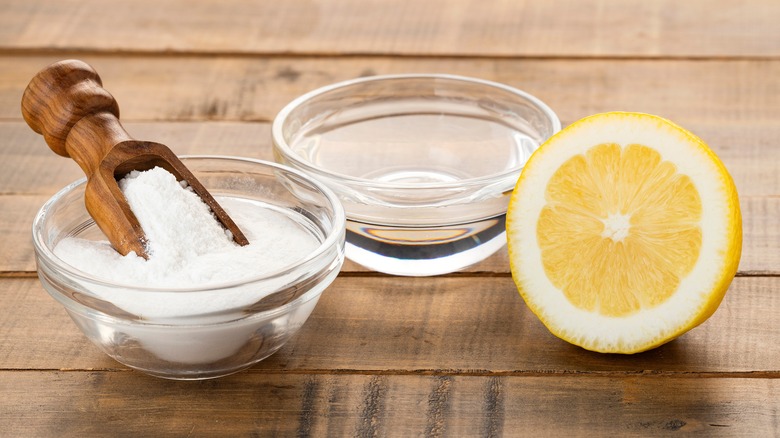The Affordable Way To Degrease Your Stovetops Without A Cleaner
Useful stove cleaning hacks that will get your cooktop sparkling include soaking your burners in soapy water overnight and removing sticky grease with a microfiber cloth. While you could also use chemical cleaners on stubborn, greasy residues that simply won't seem to come off no matter what you do, there's a more affordable way to get the job done without the nasties; using household staples, like distilled white vinegar, baking soda, and lemons.
Some stovetops, like the induction ones that have a flat glass surface, are easy to wipe clean because of their smooth finish. However, stuck-on grease stains that won't budge can be trickier to remove because using tools or harsh, textured cleaners is out of the question. They can create superficial scratches on the surface. Even hardy gas stovetops can become gunky if you fail to clean them properly in between uses, essentially baking the grease further and causing it to cling.
To degrease your stovetop without a cleaner, rub a halved lemon over it so the juice coats the surface. The citric acid in the fruit will begin to cut through any settled oily substances. Then sprinkle baking powder over the lemon to create a paste — these two ingredients will react together and create a foamy mass that dislodges any stubborn messes. The baking powder also has a grainy texture, which will act as a mild abrasive. Finally, wipe away any gunk and buff up your stovetop with a spritz of distilled white vinegar to lend it a sparkly sheen.
White vinegar, baking soda, and lemon cut down grease
Degreasing is absolutely key when it comes to cleaning up the kitchen because bacteria can harbor inside it. White vinegar (the same old stuff you'd use to make a jar of pickles) is useful for removing grease because its naturally acidic nature breaks down mineral deposits and oily substances. It also happens to be an antimicrobial, which means it eliminates everyday bacteria and sanitizes your cooking area, and doesn't have a color, like red wine vinegar, which can leave stains. Granted, white vinegar does have a distinctive tangy smell, which can deter some from using it as a cleaner. Having said that, this sour smell does dissipate quickly, making it a cheap and cheerful solution.
Glass stovetops can be wiped down easily with vinegar, but gas ones are slightly harder to degrease because of the burners and grates that need to be removed first. The proper way to clean a gas-stove top is to soak the grates in a half-vinegar and half-water solution before scrubbing them with a baking soda paste. You can spray the burners and caps with the solution, then add the paste and wipe them off before applying the paste to the stovetop itself, and finally use the vinegar as a buffing and sanitizing agent.

